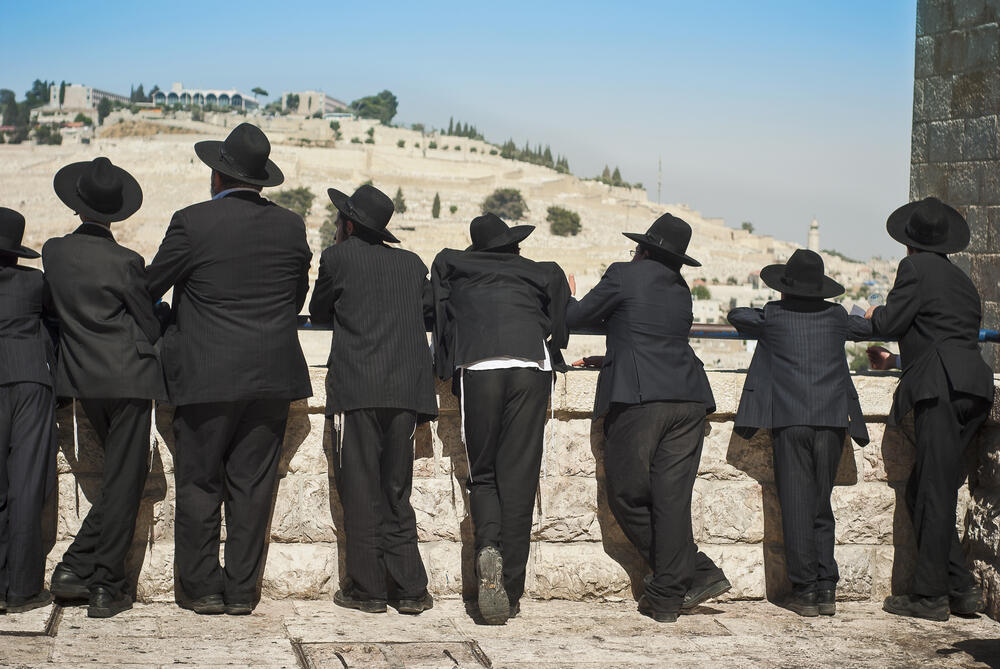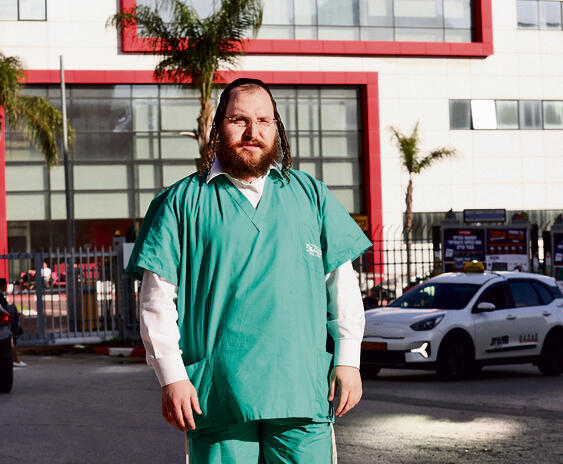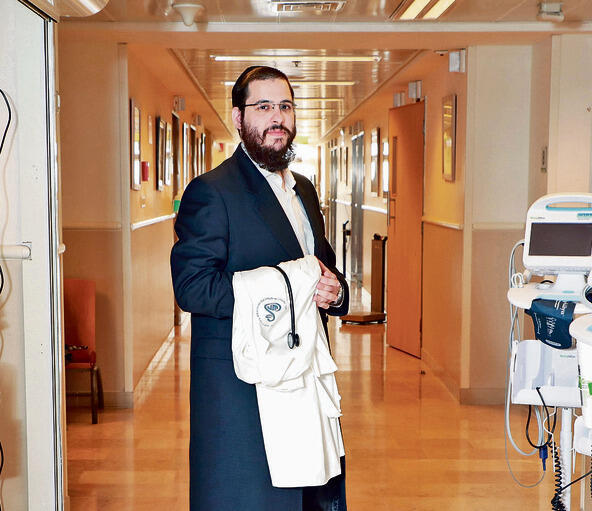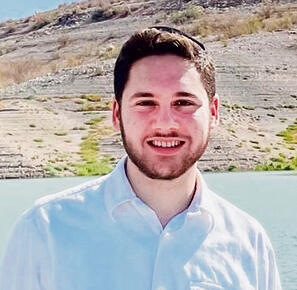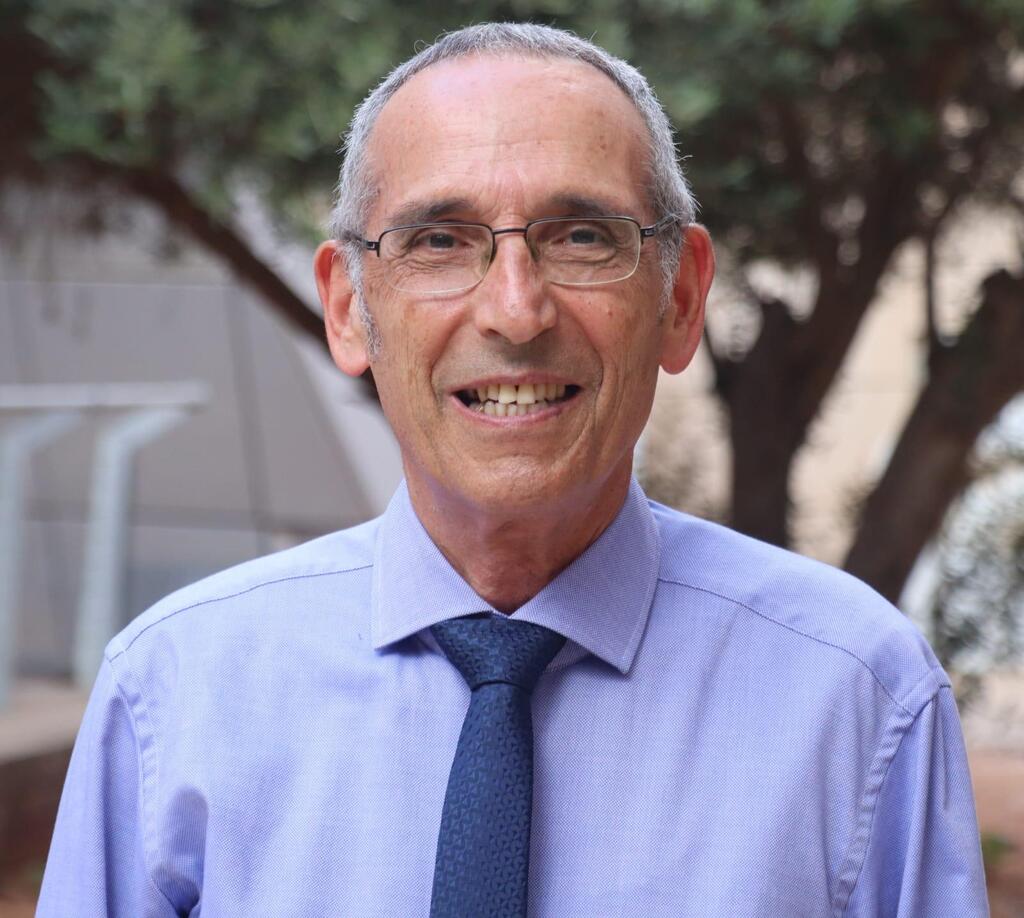Getting your Trinity Audio player ready...
Today, there are only dozens of Haredi doctors working in hospitals across Israel. But a revolution might be underway.
Read more:
In May, some 20 Haredim, men and women, will undergo exams for admission to four medical school faculties – Ariel University, Ben-Gurion University of the Negev, Tel Aviv University and Bar-Ilan University.
This will be the first time that a group of Haredi students will take the exams. This group has been trained for the exams in a preparatory program school called Netzach to Medicine, run by the Jerusalem College of Technology (JCT) in cooperation with the Haredi educational network Netzach (Eternity).
“There is no reason why Haredim should not comprise 10% of all physicians in Israel,” said Prof. Ehud Grossman, President of Ariel University, former director of the Internal Wing at Sheba Hospital and Dean of the Tel Aviv University Faculty of Medicine. Ariel is one of four universities that have become a destination for Haredim, mainly women, who are trying to fulfill their dream of studying medicine, since they offer a relatively short four-year track instead of six.
When JCT announced a year ago that this unique program was about to begin, it was flooded with about 300 inquiries. According to Dr. Sarah Genut, who heads the program, more than 60 of those applicants have attended personal interviews, and 30 have started their studies. Registration for a second cohort will begin soon.
Dr. Genut has herself broken quite a few occupational glass ceilings in the Haredi sector. She is also the founder and coordinator of the Department of Bioinformatics at JCT’s Tal Campus for women, from which one or two alumni of every class are admitted to medical school. She also established the first school for nurses in the Haredi sector and, in cooperation with the Hebrew University of Jerusalem and ran a program for pharmacy studies for Haredim.
Dr. Geula Pruchter, 41, from Givat Ze'ev, who is now preparing for pre-med exams at the Netzach to Medicine program, has six different academic degrees — including a PhD in philosophy of language. She earned these degrees while raising her eight children, now ages 3-21.
Dr. Geula Pruchter: "I see the need for more Haredi male and female physicians, who will approach the Haredi public out of respect for their worldview and will also try to find a solution to halachic problems in the field of medical care. I consider this a mission.”
Her husband is the head of a yeshiva high school for Haredi students from abroad in Ramat Beit Shemesh and one of her greatest fans. After receiving her doctorate in philosophy of language, she told him in tears: “What is left for me to study now?” He replied, “Now it’s time for you to pursue your dream of studying medicine.”
“My original dream was to integrate in academia,” says Pruchter, who works as a lecturer at a Haredi college, “but over time I realized that the healthcare system needed more manpower. Beyond the shortage of doctors, when the good [professionals] relocate abroad, I feel that in the Haredi community, there is ignorance on various health-related issues, such as tests for early detection of cancer in women, because there is no one to explain it to them.
"On the other hand, there is a sense of much hostility toward Haredi society from the medical establishment, which I also personally experienced, because of a stereotypical view and lack of awareness of the Haredi society’s unique needs. I see the need for more Haredi male and female physicians, who will approach the Haredi public out of respect for their worldview and will also try to find a solution to halachic problems in the field of medical care. I consider this a mission.”
And yet, to start a pre-med program at 41?
“Age is not a consideration,” she says. “I'm not planning on retiring.”
She adds, “I knew I would need to make up for science courses. I started over a year ago at the Open University. When I heard about the new program at JCT, I transferred because JCT provides the special environment that I need. For me, as a Haredi woman, the program is a game changer. The entire curriculum is designed with the medical school admission exam in mind, there is someone to talk to and consult about the options we have available, and all the necessary support conditions are there without the need to ask for them or to apologize for being Haredi. I am being understood.”
No option to study abroad
Today, several dozen Haredi doctors operate in Israel, the vast majority of whom are immigrants, mainly from English-speaking countries, alongside baalei tshuva. There are very few “hardcore” Haredi physicians.
In the current academic year, 83 Haredi men and women study in medical faculties – representing about 7.5% of the total number of medicine students, which is about half their proportion in the general population.
Their rate among physicians who have been certified in recent years is even lower, since the Haredim, who are usually married with children when they start their academic studies, do not have the option of studying abroad, which is the way the majority of graduates in medicine have attained their certification in recent years (64% in 2022).
"There was an attempt to establish a group of Haredim to attend medical school in Rome, which proved impractical," says Haim Leibowitz, 31, a Netzach to Medicine program student. “The study schedule is not compatible with the Jewish calendar of holidays. It is difficult to relocate a family abroad not to mention which Haredi educational institutions would they attend?”
Leibowitz, a Nadvorna Hassid and father of four, is a certified nurse who works in a hospital and a nursing home. But he dreamed of becoming a doctor.
“I was born in Haifa, at a young age we moved abroad, and when I returned I studied at the yeshiva. After marrying I went to Kollel. After a day and a half, a fellow friend, who was responsible for taking care of our Rebbe while he was hospitalized, asked me why not study nursing? Three years into my marriage, with two children, and equipped with the Admor’s permission, I registered for a make-up (preparatory program) year, and after an additional four years I was certified as a nurse. And then I started asking myself: Why not a doctor? I saw more interest in the profession in the Haredi circles as well. I recognized the need, and morally it is a profession whose mission is helping others.”
During the COVID-19 pandemic, when Bnei Brak was in quarantine, Dr. Yehuda Sabiner, 33, was the only Haredi doctor resident of the city who remained at Tel Hashomer Hospital isolated from his family. He was very engaged in explaining the dangers of COVID-19 to the rabbis and the community, while at the same time discussing community challenges with the medical establishment.
“I have experienced the need for Haredi doctors already during COVID,” he says. “The mortality rate in the Haredi sector for cancers like breast or colon cancer is higher than in the general public, not because the number of patients with the disease is different, but because screening for early detection is much lower. When there will be more Haredi doctors in the system who know how to mediate the need for early detection tests, I have no doubt that the situation will change.”
Meanwhile, Ortal Chalfon, 25, began her medical studies at Tel Aviv University this year. She is a Haredi woman who made a breakthrough: a graduate of a well-known Haredi seminary who was accepted into four medical schools.
“I’ve always dreamt of studying medicine,” she says. “I realized that I wouldn’t be able to do it in the conventional way of six years of study, and my family didn’t like the idea either. I chose the second option: A degree in bioinformatics at JCT’s Tal Campus, after I verified that the degree was enough to open the door to medical studies and I began working in the bioinformatics profession at Tel Aviv University.
"There is no doubt that being a Haredi in the system is certainly not an easy challenge. Only after I started the process, I found a Haredi woman who studied medicine at Tel Aviv University and started her internship. Today, out of 170 students, we are the only two Haredim.”
Yonatan Friedenberg, 24, from Jerusalem, also has a Haredi background and dreamed of becoming a doctor. At age 17, he traveled with his father to Rabbi Chaim Kanievsky zt”l and asked for his blessing to become a rabbi and a doctor. The rabbi blessed him to be “a blessed and successful rabbi and dentist.”
He is currently a third-year dental student and earned honors at the Hebrew University, and studies in the preparatory program for medical exam admissions. “In my family, they would have preferred that I study in yeshiva like my brother, that I continue to study at a kollel, but they understand that I am doing something meaningful. Maybe I was attracted to medicine because as a child who suffered from allergies, I came across the profession and was fascinated.”
The personality test problem
One of the barriers involved with medical school entrance exams is the need to pass personality tests, including personal interviews. The testers are secular. The Haredi candidates are not prepared for the questions drawn from the world of secular concepts which are not always related to medicine. A candidate who did not respond to a question "Why is your husband and ‘avreich’ and doesn't join the army?" was disqualified. A year later, she was admitted to more than one medical school.
“The testing system needs to adapt itself because the medical domain is interested in Haredi manpower,” says Dr. Genut.
Prof. Ido Wolff, Dean of the Tel Aviv Faculty of Medicine and head of the Oncological Array at Ichilov Hospital, said, “It is important that all populations are represented in medical studies. You can't have all the doctors be of the same profile. The Faculty of Medicine must reflect Israeli society, including the periphery, Arabs, and Jews of Ethiopian origin.”
He admits, “We discovered that the biggest obstacle is the personality exam, which tests are too dependent on the cultural characteristics of the examiners, and are suitable for the educated sector from the center of the country, secular and religious, high school graduates with high bagrut scores, who know how to prepare well for the admission tests for medical faculties. The Haredim do not fit this profile. We decided that in the next school year, 10% of the students we will admit will belong to these target populations, even if they did not meet the traditional criteria we set for ourselves. It’s not that they will not be less qualified for medical school, but we will put less emphasis on the personality exams.”
A sign of things to come?
Will the rise in Haredi medical students become a sweeping trend?
“The shortage of doctors and the relocation of Israeli doctors overseas make academia more aware than ever of the need to welcome the Haredim into the circle of medical practitioners,” says Adv. Avraham Yustman, Vice President of Kemach Philanthropic Fund, which engages in the integration of Haredim into the Israeli workforce.
Most potential Haredi candidates for medical studies will choose the four-year tracks rather than the longer, classic ones.
Should Israel expect Haredi doctors who are less qualified due to this shorter training period? Prof. Grossman rejects such concerns.
“The graduate of a four-year medical track, who comes with a bachelor’s degree and the completion of the required courses, does not fall short from the six-year graduate,” he says. “We should also remember that we usually get older, and more mature people.”
Yustman adds, “And from the Haredi perspective, the growth and progress of the para-medical field in the sector, which thousands of women and men work in today, have contributed to the understanding that this is possible. If there will be more resources and more scholarships, more Haredim will join. If both sides operate correctly, the Haredim will maintain their identity and the faculties will be more flexible, we will see more and more Haredi doctors.”


